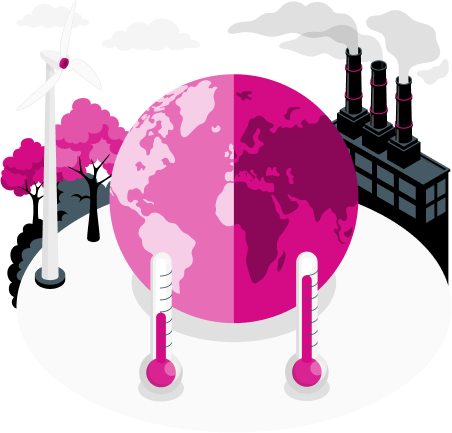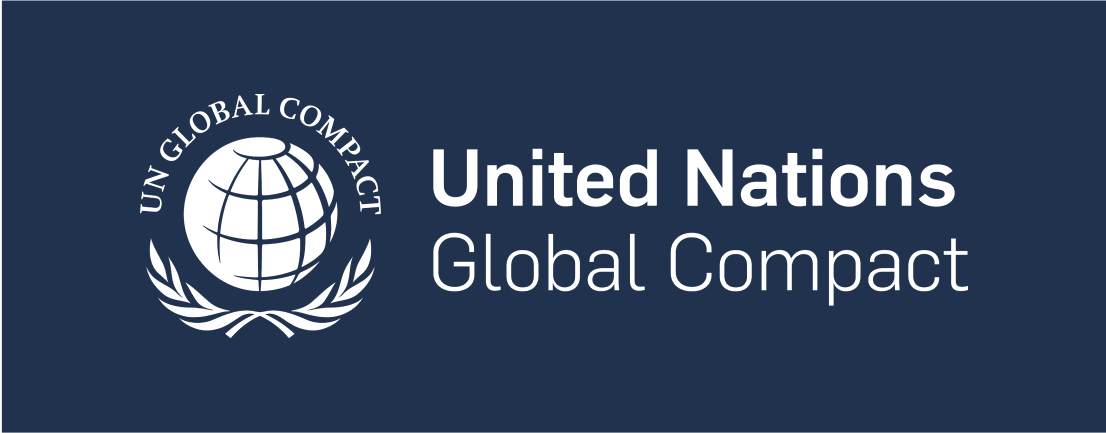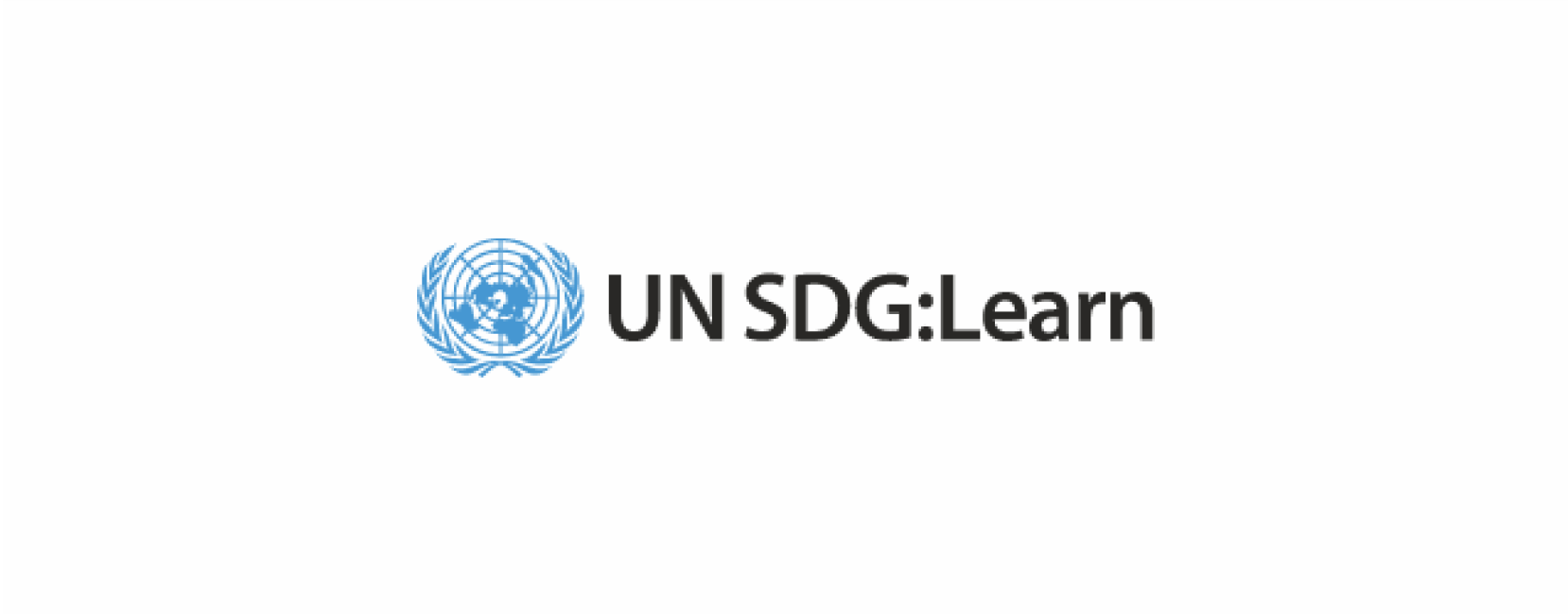Climate Change
Acting on climate change has never been more important. For effective change, and ultimately reaching part of our decarbonization targets and responsible sourcing strategies, we need global engagement based on Concept4 sourcing footprints of the countries (e.g., Mainland China and others sourcing countries dominant to our turnovers) so that emissions from all parts of the value chain will be reduced.

We want to encourage all business partners along Concept4 supply chain, both current customers, suppliers and everybody else, to use and learn from the below tools and included trainings.

The SME Climate Hub provides guidance, tools and information for how to work with climate in alignment with the 1.5°C ambition. It is mainly directed to small and medium enterprises, but valuable for organizations of all sizes. On this page Small and Medium enterprises can also free of charge publicly announce their 1.5°C aligned target.

A Guideline for Exponential Climate Action provides an easy to readstep by step guide for companies on how to work with climate in alignment with the 1.5°C ambition.

1.5 °C Supplier Engagement Guide
The 1.5°C Supplier Engagement Guide is a freely accessible guide for companies seeking to reduce GHG emissions in their supply chains.

An introductory e-learning course by United Nations Global Compact Academy, an online training in several languages, free of charge. By completing this session and related learning materials, you will learn:
What is a science-based target?
How to set a science-based target?
What can companies do to align with net-zero?
The link above takes you to the English training, using the academy you will find more languages as well as other trainings from UNGC.

The Net-Zero Standard – UN SDG:Learn (unsdglearn.org)
In this 20-minute, interactive e-learning course delivered by the UN Global Compact Academy and the Science Based Targets initiative, you will:
Discover how the Net-Zero Standard provides a common, robust, and science-based understanding of net-zero
Receive guidance on how to set science-based net-zero targets consistent with limiting global temperature rise to 1.5C.
Align your company’s near- and long-term targets with climate science.
Competitiveness Through Enterprise Sustainability – UN SDG:Learn (unsdglearn.org)
Sign up for this free of charge training developed by Trade Center and get a certificate at completion. This is specifically for SME, Small Medium Enterprises. During a period of 2 weeks, and with an effort of 4 hours per week, you will learn about and be able to:
Associate the importance of sustainability to business success.
Identify ways in which an enterprise can reduce its negative impact on the environment.
Identify ways in which an enterprise can improve its social responsibility.
Complete a basic enterprise sustainability assessment.
Energy & Emissions

Designing MRV Systems for Entity-Level Greenhouse Gas Emissions
The course Designing MRV Systems for Entity-Level Greenhouse Gas Emissions supports policymakers and practitioners in developing GHG reporting programs for collecting emissions data from entities.
| Delivery Online |
Type – |
Length – |
Duration 4-5 hours per week |
Free |
Scope 2 Guidance Training Webinar
The Scope 2 Guidance standardizes how corporations measure and report emissions from purchased or acquired electricity, steam, heat, and cooling, including new requirements on accounting for emissions from energy contracts and instruments (such as renewable energy certificates) in greenhouse gas inventories.
| Delivery Online |
Type – |
Length – |
Duration – |
Free |

Energy Within Environmental Constraints
This course is rich in details of real devices and light on theory. You won’t find any electrodynamics here, but you will find enough about modern commercial solar panels to estimate if they would be profitable to install in a given location. We emphasizes costs: the cascade of capital and operating costs from energy extraction all the way through end uses.
| Delivery Online |
Type Self-paced |
Length 10 weeks |
Duration 3-5 hours per week |
Free |
Inclusive Energy Systems – Exploring Sustainable Energy for All
This course will focus on how can we can tackle those challenges and accomplish an Inclusive Energy System, in which energy services are recognized as a social right for every citizen. We will use a socio-technical systems approach to the energy system. By examining the system from various value perspectives we will discover new solutions for the inclusive provision of energy services beyond the purely technological solutions.
| Delivery Online |
Type Self-paced |
Length 6 weeks |
Duration 3-4 hours per week |
Free |
Zero-Energy Design: an approach to make your building sustainable
This course introduces you to zero energy design. It will teach you a stepped approach to design a zero energy climate concept for existing buildings: homes, schools, offices, shops etc. It will demonstrate how an integrated approach, which takes into account both passive measures (such as thermal insulation and sun shading) and active measures (such as heat pumps and photovoltaic panels), can deliver the best results.
| Delivery Online |
Type Self-paced |
Length 7 weeks |
Duration 4-6 hours per week |
Free |
Water Management

Water Supply and Sanitation Policy in Developing Countries Part 1: Understanding Complex Problems
This course explores what can be done to solve the complex problem that half a billion people worldwide do not have improved water supplies and two billion do not have improved sanitation. We look forward to you joining us. We want to help you develop the skills you need to address this major global challenge of the 21st century.
| Delivery Online |
Type – |
Length – |
Duration 26 hours |
Free |

Agricultural Water Management: Water,-Society and Technology Interactions
In this course, we will focus on the role agricultural water management plays in this global context of sustainable water and food supplies. The course explores the institutional perspective, from models of rural development to water management demands.
| Delivery Online |
Type Self-paced |
Length 10 weeks |
Duration 4-5 hours per week |
Free |
This course focuses on conventional technologies for drinking water treatment. Unit processes, involved in the treatment chain, are discussed as well as the physical, chemical and biological processes involved.
| Delivery Online |
Type Self-paced |
Length 7 weeks |
Duration 6-8 hours per week |
Free |
Introduction to Water and Climate
This course offers a first introduction to the physics of water systems and their role in climate. In addition, we show you the state-of-the-art engineering interventions that can be applied to water systems. These can improve coastal safety and increase the availability of water supplies worldwide.
| Delivery Online |
Type Self-paced |
Length 10 weeks |
Duration 6-8 hours per week |
Free |
Sustainable Resource Recovery from Used Water
This course is about the state of the art in resource recovery technologies from wastewater. Regardless of your background, we will teach you the core concepts underpinning the recovery of carbon, nutrients, energy and water.
| Delivery Online |
Type Self-paced |
Length 5 weeks |
Duration 2-4 hours per week |
Free |
Waste Management

Municipal Solid Waste Management in Developing Countries
This course provides you with an overview of the municipal solid waste management situation in low- and middle-income countries. It covers key elements of the waste management system, such as its technical, environmental, social, financial and institutional aspects. Besides understanding the challenges, you will be introduced to appropriate and already applied solutions through selected case studies.
| Delivery – |
Type – |
Length – |
Duration 22 hours |
Free |

Circular Economy for a Sustainable Built Environment
In this course you will become familiar with circularity as a systemic, multi-disciplinary approach, concerned with the different scale, from material to product, building, city, and region
| Delivery Online |
Type Self-paced |
Length 6 weeks |
Duration 3-5 hours per week |
Free |
Circular Fashion: Design, Science and Value in a Sustainable Clothing Industry
Design, Science and Value in a Sustainable Clothing Industry brings you a comprehensive introduction in circular fashion brought to you by roughly thirty different experts from both academia and practice. You will learn about the versatile task of transitioning towards circular fashion
| Delivery Online |
Type Self-paced |
Length 5 weeks |
Duration 8-12 hours per week |
Free |
Sustainable Packaging in a Circular Economy
In this course, you will learn about the design of sustainable packaging systems. To do so we will explore the design and business strategies of the circular economy. You’ll also benefit if you are a professional in the packaging industry and want to learn how to find circular opportunities in your work.
| Delivery Online |
Type Self-paced |
Length 6 weeks |
Duration 3-4 hours per week |
Free |
Sustainable Supply Chain Planning, Sourcing, and Procurement
The course will begin with content on how to integrate sustainability and circularity into planning and sourcing. The course demonstrates the importance of efficiency and long-term planning to ensure the minimization of waste and the maximization of productive Supply Chain flow.
| Delivery Online |
Type Self-paced |
Length 4 weeks |
Duration 2-8 hours per week |
Free |
Waste Management and Critical Raw Materials
In this course, we will look at the potential benefits of circular procurement and how recycling technologies and more efficient ways of collecting and recycling critical raw materials (CRMs) can make your business and production more resource resilient.
| Delivery Online |
Type Self-paced |
Length 6 weeks |
Duration 4-6 hours per week |
Free |
Chemical Usage

Webinar ZDHC MRSL 3.0 – The Importance of Adopting the ZDHC MRSL V3.0 and its supporting documents
In 2022 ZDHC Foundation launched the ZDHC MRSL V3.0. The ZDHC MRSL Version 3.0 includes some new harmful chemical substances added to the ZDHC Manufacturing Restricted Substances List (ZDHC MRSL) including PFAS treatments used for textiles, leather, and footwear. Notable other changes include a limit for aniline in dyestuffs and the inclusion of a number of organic solvents. In this free webinar the ZDHC MRSL 3.0 is explained by the ZDHC Team.
| Delivery – |
Type – |
Length – |
Duration – |
Free |
Webinar ZDHC MMCF Guidelines 2.2 & MMCF Module V2.0
The objective of the ZDHC MMCF V2.2 guideline is to address the expectations for: • Process chemical recovery rates • Wastewater environmental impact in terms of load per tonne of fibre or filament produced • Best practices in production of MMCF
| Delivery – |
Type – |
Length – |
Duration – |
Free |
Biodiversity

As above, so below: An introduction to soils, ecosystems and livelihoods in the Tropics
Soils form the foundation of sustainable development. They grow our food, fiber and fuel, are a habitat for organisms, buffer and purify water and safeguard archaeological legacies. It is therefore of vital importance to understand how soil properties vary across tropical ecosystems and landscapes, and how these properties affect biodiversity and livelihoods.This course aim to understand tropical soils and want to learn how to keep those soils healthy.
| Delivery Online |
Type Self-paced |
Length 7 weeks |
Duration 4-6 hours per week |
Free |
Biodiversity-related disclosure: Understanding impacts and dependencies
As markets begin to understand and appreciate the risks and opportunities associated with climate change, there is a growing recognition that these are connected to wider natural capital issues. This includes risks associated with water stress and the loss of biodiversity, amongst others.
| Delivery – |
Type – |
Length – |
Duration – |
Free |
Introduction to Biology: Ecology
Ecology is all about connections. In this course, we’ll see how interdependent every living thing is and how people are impacting the natural world.
| Delivery Online |
Type – |
Length – |
Duration 19 hours |
Free |
Introduction to Land Management
Land is a scarce and limited resource, which cannot be multiplied. It is a valuable basis for livelihood and for economic or ecological development. Land conflicts occur when people with different interests run up against the declining availability of fertile land. This course gives you insight into basic functions and tasks of land management. It will help you recognize important land correlations with other fields of interest.
| Delivery Online |
Type Self-paced |
Length 6 weeks |
Duration 2-4 hours per week |
Free |
Diversity & Inclusion

Climate Change And Human Rights
This course is primarily aimed at anyone interested in learning about the growing field of climate change and human rights. It will discuss the history of the field, key actors and cases, as well as emerging trends and takeaways.
| Delivery – |
Type – |
Length – |
Duration 8 hours |
Free |
Climate change and Indigenous People and local communities
You will understand the different debates around climate change impacts on Indigenous Peoples and local communities (IPLC)
| Delivery – |
Type – |
Length – |
Duration 14 hours |
Free |

Discrimination and Diversity in the Modern Workplace
This course helps professionals navigate complex group dynamics, communicate effectively in challenging situations, and understand how to make decisions consistent with equity goals across their organizations. The courses adapt the latest research to aid professionals as they develop productive responses to policy, ethical, and cultural challenges that organizations confront.
| Delivery Online |
Type Self-paced |
Length 8 weeks |
Duration 5-8 hours per week |
Free |
Diversity, Equity and Inclusion (DEI) in the Workplace
Gain an in-depth understanding and the importance of diversity, equity, and inclusion (DEI) in the workplace. You will be equipped with a practical DEI action plan to promote innovation and retain talent in your organization.
| Delivery Online |
Type Self-paced |
Length 2 weeks |
Duration 5-8 hours per week |
Free |
Ethical Decision-Making: Labor and Production Dilemmas
Labor and production standards, meant to ensure the safety of workers and consumers, are neither universally accepted nor always enforced. Where local governments fail to act, global corporations may receive pressure to step in. In this course, you will consider ethical questions about the role of international businesses in preventing harm abroad.
| Delivery Online |
Type Self-paced |
Length 9 weeks |
Duration 3-5 hours per week |
Free |
Ethical Leadership: Character, Civility, and Community
Explore theoretical and practical elements of ethical leadership with emphasis on leaders’ personal narratives within social and historical contexts.
| Delivery Online |
Type Self-paced |
Length 9 weeks |
Duration 3-5 hours per week |
Free |
Responsible Innovation: Ethics, Safety and Technology
The course is for all students who are looking for a methodical approach to judge and manage innovations and related ethical risks from a broader – societal- perspective.
| Delivery Online |
Type Self-paced |
Length 7 weeks |
Duration 4-6 hours per week |
Free |
Child Protection: Children’s Rights in Theory and Practice
This course will teach you the causes and consequences of child protection failures. You will consider the strategies, international laws, standards, and resources required to protect all children. Learners will come to understand how they can ensure the protection of children and apply child protection strategies to their own work.
| Delivery Online |
Type Self-paced |
Length 16 weeks |
Duration 2-6 hours per week |
Free |

Supplier Portal – Mekong Club (themekongclub.org)
Mekong Club’s Supplier Web Portal to empower and equip you with the essential tools, resources, and knowledge to effectively address modern slavery concerns and implement human rights due diligence (HRDD).
| Delivery Online |
Type – |
Length – |
Duration – |
Free |
How Modern Slavery Impacts Supply Chains (youtube.com)
An introductory video about each of the issues under modern slavery, as well as what and why suppliers should react.
| Delivery Online |
Type Webinar |
Length – |
Duration – |
Free |
Forced-Labour-Indicators.pdf (themekongclub.org)
Forced-Labour-Indicators-Mandarin.pdf (themekongclub.org)
Eleven key indicators identified by the International Labour Organization (ILO) on how to identify and prevent forced labor risks in factory’s operation and supply chains. Case studies and correct practices are given.
| Delivery Online |
Type Guide |
Length – |
Duration – |
Free |
Transparency-Legislation-Guide-for-Suppli-ers-1.pdf (themekongclub.org)
Transparency-Legislation-Guide-for-Suppli-ers-Mandarin.pdf (themekongclub.org)
A summary on global anti-slavery or human rights due diligence legislations and how they will impact the global supply chain. Correct collaborative measures on fair employment and working conditions are introduced.
| Delivery Online |
Type Guide |
Length – |
Duration – |
Free |
Mekong Club Webinar: Responsible Recruitment: Theory, Reality, Lessons to Learn (youtube.com)
Introduction to the important topic of modern slavery, responsible recruitment, its theory and key principles focusing on protection of migrant workers.
Mekong Club Webinar: Recruitment in China: Systemic Challenges, Risks & Remedies (youtube.com)
The webinar examined the typical demographic patterns, listed common challenges faced by employees, and highlighted regulatory risks for employers. It also provided viable practices for recruiters to mitigate risks when hiring migrant workers in China.
| Delivery Online |
Type Webinar |
Length – |
Duration 1-2 hours |
Free |

